The first stop is the Mekong River sunset selfie.
Chinese tourists are bussed straight from the new high-speed train from Kunming to the ancient Lao city of Luang Prabang. They scramble up the 300 and some steps at Mount Phousi to the Buddhist Temple, just in time for photos as the sun sinks over the river and hills. Then it's off to one of the big hotels that are expanding to cope with the influx of tour groups since the railway connected the town to China.
The surge in Chinese tourism to landlocked and mountainous Laos, a Southeast Asian country scarred by U.S. bombing in the 1970s, is a boost for an economy that has been in freefall, with skyrocketing debt, a tumbling currency and a collapse in public services.
But it is also a reminder of the increasing domination of Laos by its giant northern neigbour in the latest geopolitical competition. Its fellow communist state was the source of most of the borrowing to build not only the railway line, but also a massive expansion of hydroelectricity schemes, investments whose potential payoff has not come in time to avert economic crisis.
Luang Prabang in the north is now a vantage point for the uneven impact of the changes these projects have brought—from the way the new dams are destroying traditional riverine livelihoods to UNESCO's concerns over what the hydropower expansion and the dramatic increase in tourism both could mean for the town's coveted World Heritage status.

"The Chinese come and take all the resources from the land, and the government gets all the benefits while we get nothing," complains Noi, a Mekong River boatman whose life of fishing and gathering river weeds has been turned upside down by the changes.
Like most others, he does not want to give his full name in a country of seven million people ranked as one of the world's most repressive of civil liberties.
While Laos is off the beaten track, it has not been isolated from geopolitics. It is the most bombed country in history after the United States dropped more than two million tons of bombs—dozens of times more than what Israel has dropped in the recent Gaza war—to try to cut off supply routes for Viet Cong guerrillas. Trinkets made from metal recycled from the bombs are popular souvenirs in Luang Prabang's market.
Given its position along the spine of mainland Southeast Asia, Laos is part of the newer battle for influence, too. And there is no doubt that it is one in which China has a big edge over the United States.
"Over the last 10 years, China's flood of investment, of people, of infrastructure projects, of loans, has really overwhelmed a country that is historically weak and passive in its ability to take sovereignty and make decisions that are best for the people of Laos," Brian Eyler, director of the Southeast Asia Program at the Washington D.C.-based Stimson Center, told Newsweek.
The Chinese Embassy in Laos did not respond to Newsweek's request for comment, nor did the Laos Ministry of Information, Culture and Tourism.
Last year, Chinese Premier Li Qiang said Beijing was seeking to deepen cooperation and promote joint development with its southern neighbor, according to China's state-run news agency Xinhua.
"China has always viewed relations with Laos from a strategic perspective," it quoted Li as saying.
The importance of Laos from the diplomatic aspect is even higher this year as it chairs the Association of Southeast Asian Nations, a regional grouping that discusses issues such as China's disputed claims in the South China Sea, even if it does not take action in the face of strong Chinese pressure.
Belt and Road
Chinese investment in Laos as part of President Xi Jinping's signature Belt and Road Initiative has been across the board, not least in the hydropower projects aimed at making Laos "the battery of Southeast Asia" and the $6 billion railway, which opened t the end of 2021. But that has also helped lead to the debt crisis.
The World Bank blames a shortage of foreign exchange due to debt repayments for the kip currency, which has fallen 20 percent in value over the past year, as well as an annual inflation rate that topped 40 percent early last year and a decline in spending power.
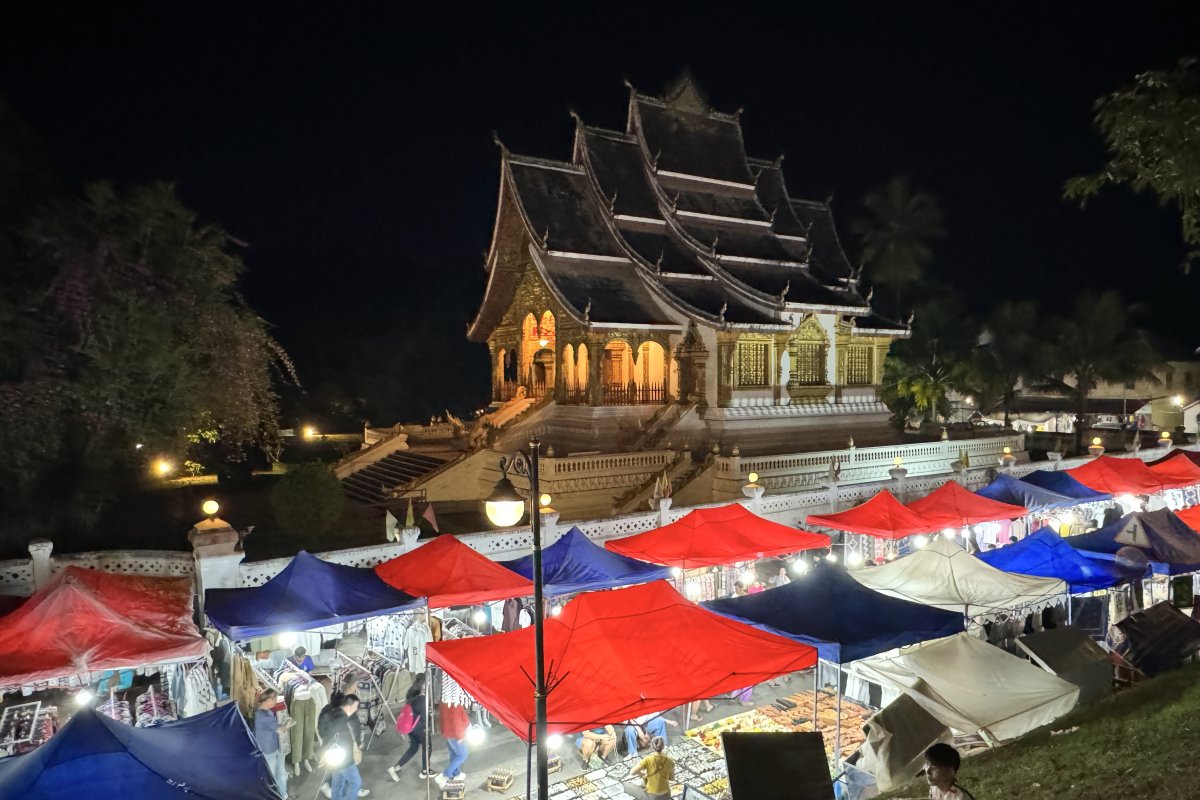
"Households are coping by producing or foraging more food, reducing how much they eat, and migrating to Thailand in search of better-paid jobs," the World Bank said late last year, after a survey showed half of people were spending less on health and education. "As public expenditure in these sectors is also falling, Laos' overall investment in human capital is declining," it warned.
About half the debt repayments due until 2027 are owed to China, the World Bank said.
"It's important to note that Laos carries debts not only from China, but also from other international financial institutions. These debts have made positive contributions to Laos' economic and social development," Lao Prime Minister Sonexay Siphandone told the Chinese state broadcaster CGTN last year.
According to the AidData research lab at the College of William and Mary, a public research university in Virginia, Laos' cumulative public debt exposure to China is equivalent to about $10.4 billion—over half its gross domestic product. But it notes "hidden" sources of debt as well, such as those that arose from the structure in which the railway was financed. Count those in too, and the figure is nearer to $17 billion, or nearly 90 percent of Laos' GDP.
"Laos simply cannot afford to alienate or antagonize its largest external creditor," AidData's executive director, Bradley Parks, told Newsweek.
Whether or not Laos has fallen into the sort of "debt trap" that Western critics accuse Beijing of setting to increase leverage over weaker states, China has been bailing Laos out by offering different forms of debt relief, estimated by the World Bank to be worth hundreds of millions of dollars, as well as additional emergency lending. That has also further increased its sway. In 2020, for instance, a Chinese state enterprise bought a majority stake in the nation's electric grid.
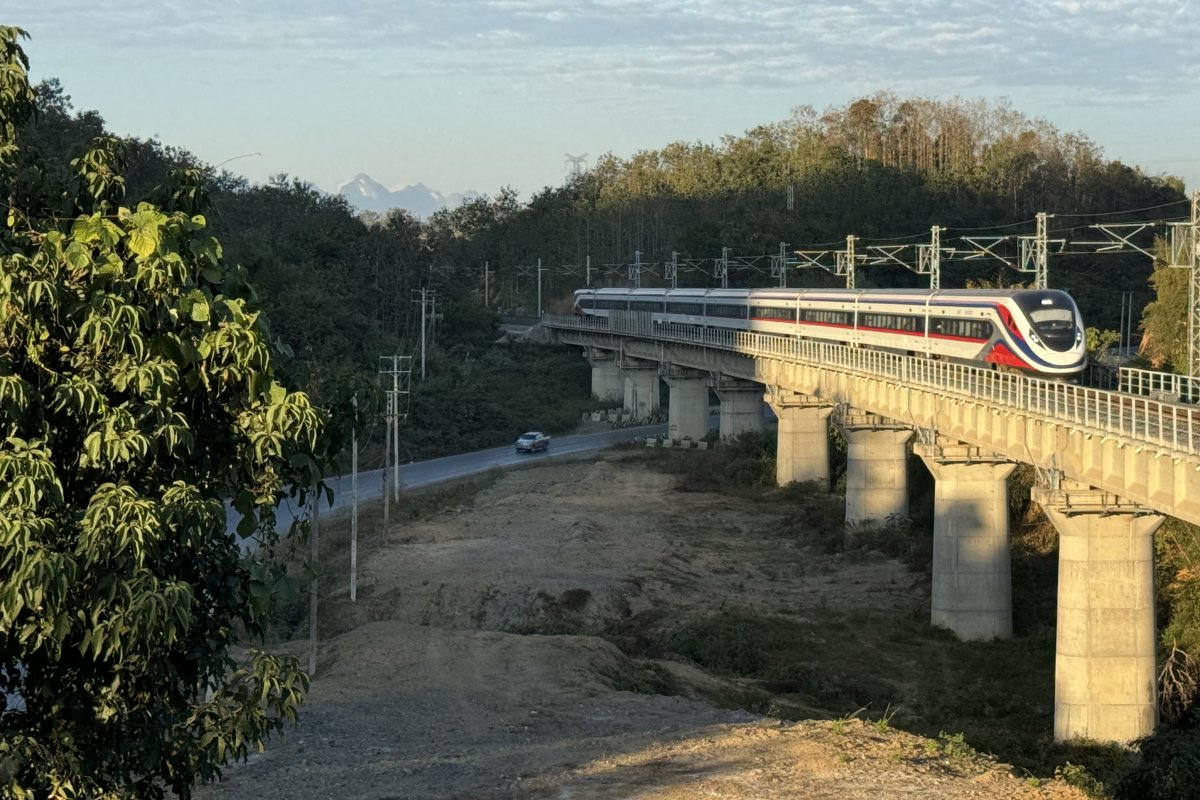
The long-term question for Laos is when its externally funded investments will pay off. Parks said it was unclear whether the railway would generate sufficient revenue to facilitate loan repayments to China's Eximbank, citing studies that raised questions over when it would be profitable.
Eyler said some individuals in government had benefited from the hydroelectric dams, but the picture for the country as a whole was less certain.
On the Mekong River, local people say the dams are killing their way of life.
Just upriver from Luang Prabang, generations of M'Mone's family have profited from turning seasonal river weeds into tasty snacks. Repeatedly cleaned—including in an adapted washing machine—the weeds are pressed into sheets to dry with sesame, garlic and tomato. Fried in hot oil, the taste easily matches that of any gourmet Japanese seaweed.
But since work started on the Luang Prabang dam, further up the river, the old grounds have gone, he said.
"We have to go an hour and a half further upstream to get it," M'Mone told Newsweek. Costs have gone up; supplies have gone down. And with yet another dam planned at Pak Beng by Chinese and Thai companies higher up the Mekong, there are questions as to how long his livelihood will survive at all.
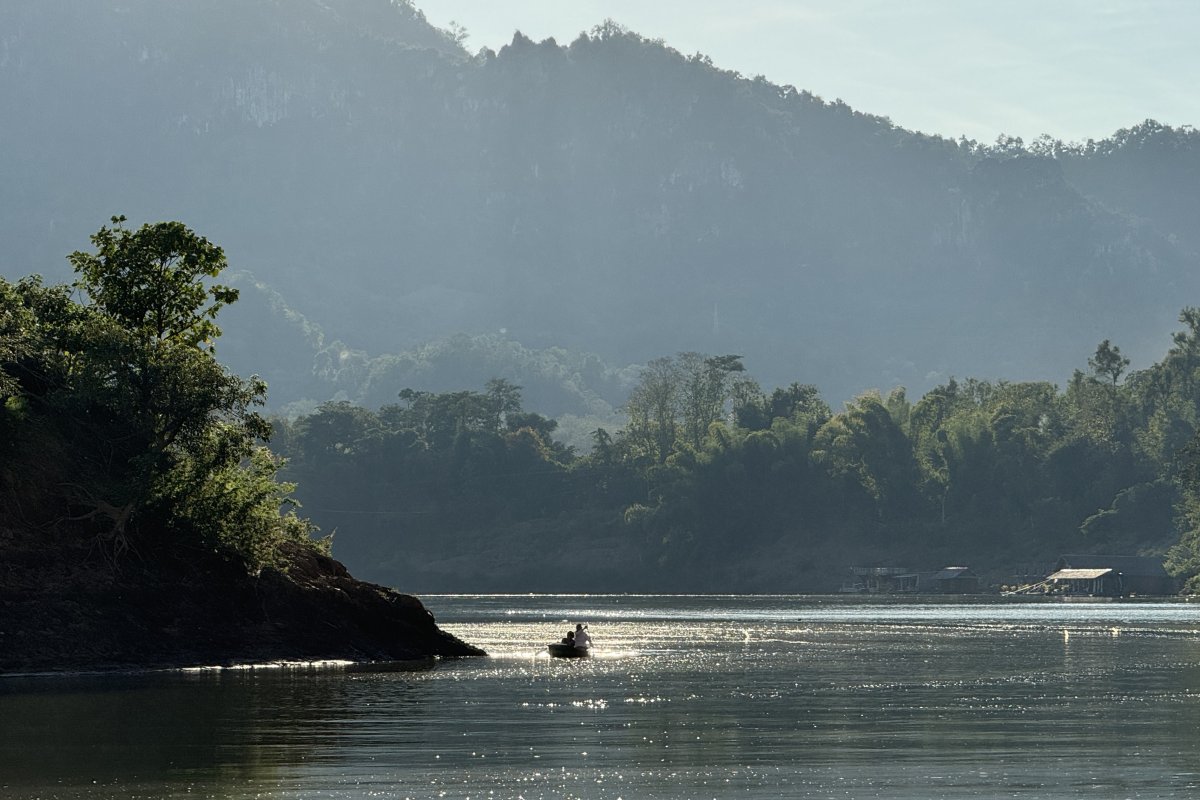
Murky Waters
The Luang Prabang Power Company, whose biggest shareholder is Thai company CK Power, said it sought a balance between business and environmental protection. But as the waters surged around the Luang Prabang dam construction site in a murky churn, Noi said the currents had changed forever and the fish were gone.
"The whole village, and everyone here, was against it, but the government doesn't care," he said.
Downstream from Luang Prabang, the lesson is that such sentiments are also unlikely to change. People relocated a decade ago for the now operational Xayaburi Dam, which sells nearly all of its electricity to Thailand. The village there was moved up the hillside but kept only its name: Talan.
"Now people have to go to the jungle and burn the forest to make new farms," said one resident. "We miss the river every day—morning or night. We always used to find some benefit. Now it is very difficult."
The people of Talan got compensation, but they say payments soon ran out.
"How to compensate for the loss of the nature or ecosystem?" asked Pai Deetes, regional campaign director for the Southeast Asia Program at the NGO International Rivers. "We need to change the way that we are looking at the Mekong hydropower just as electricity production, but it's like actually a life support system," she told Newsweek.
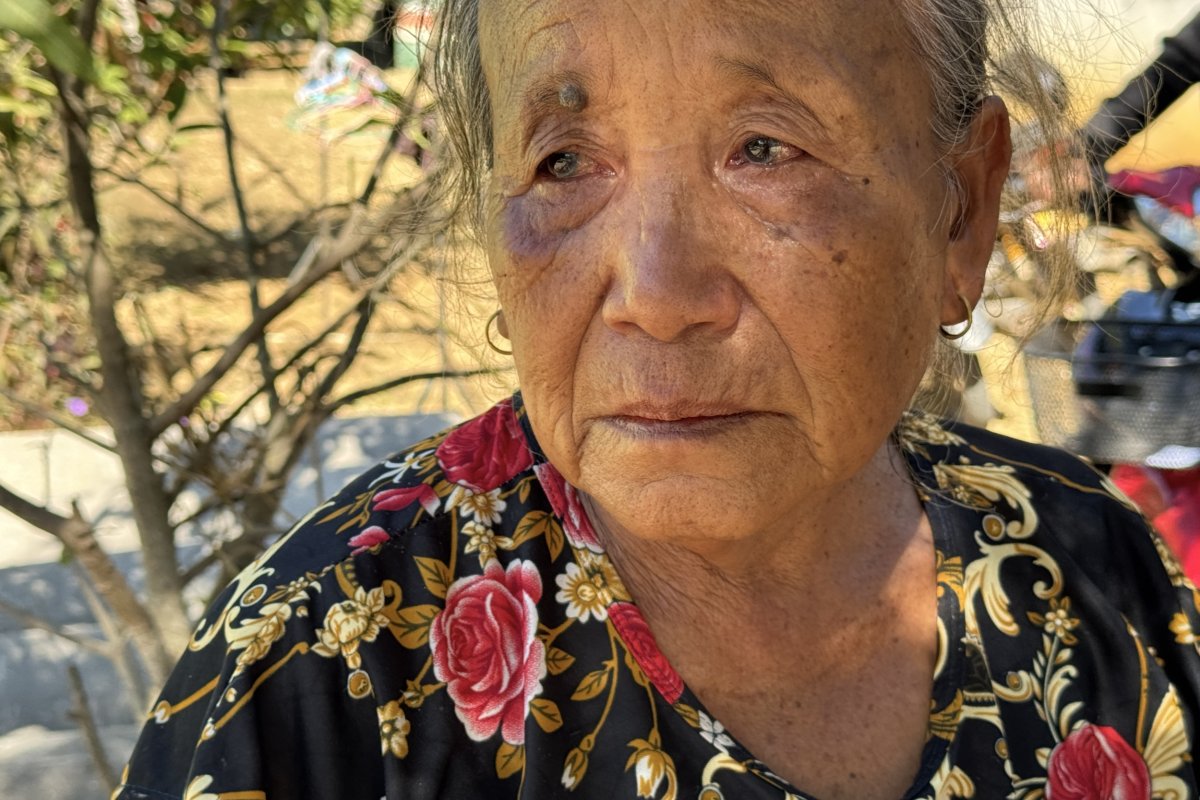
The impact of the dams is also a concern to UNESCO, the U.N. scientific and cultural organization, which is the guardian of world heritage sites around the globe. The dams change the water flows and pose dangers during construction. Then there is the risk of flooding if an emergency water release is required.
Late last year, UNESCO asked authorities in Laos to explain what they were doing to protect Luang Prabang against the risks from hydropower projects, as well as to strengthen protection of tourist sites in the face of rising numbers of visitors, whose presence raises questions over their capacity to absorb them—including the top selfie spot at Mount Phousi.
"There are so many Chinese here now," Wu Di, a tourist visiting from China's coastal Shandong province, told Newsweek. "We love it here. It's so peaceful."
Some people in Luang Prabang are undoubtedly benefiting from the tourism.
Bookings at the Luang Prabang Elephant Camp have tripled. While new elephant attractions have been built to accommodate tourists from elsewhere who no longer want to ride elephants—a practice widely seen as cruel—some of the groups from China have less qualms about swaying along on the backs of the animals as they are spurred on by mahouts swinging sharp hooks. Up to 20 groups a day, each comprising 50 tourists, come by for elephant rides.
The rebranded E-outfitting Vang Thong Hotel is now under Chinese administration and has seen bookings rise 50 percent with the Chinese tour groups, its manager said.
While some complain that the Chinese stay only at their own hotels and spend little within Laos itself, others say that they nonetheless bring a benefit to the town. Tour guides who speak Chinese say they can earn twice as much as those speaking English because there are simply more travelers.
The railway doesn't only bring tourists either. It also carries watermelons, bananas, sugar cane and other produce for export to China's southwestern Yunnan province.
One tourist guide in Luang Prabang complained that Lao people were getting only a small share in new business developments owned by Chinese investors. But he added that his daughter was now learning Mandarin to prepare for the future.
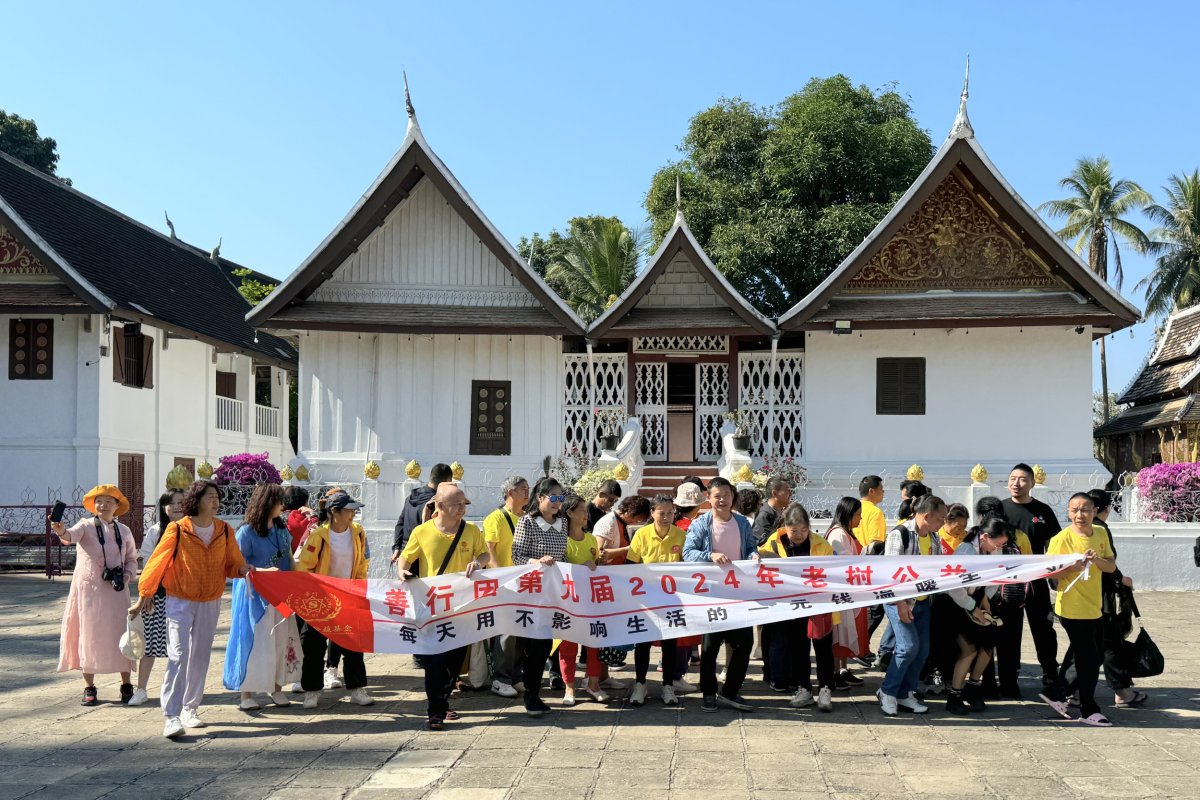
Uncommon Knowledge
Newsweek is committed to challenging conventional wisdom and finding connections in the search for common ground.
Newsweek is committed to challenging conventional wisdom and finding connections in the search for common ground.
About the writer
To read how Newsweek uses AI as a newsroom tool, Click here.






